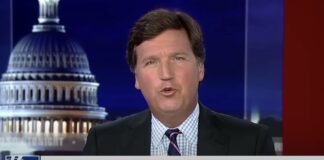OPINION | This article contains commentary that reflects the author's opinion.

Seattle’s mayoral primary opens Tuesday and voters have a major decision ahead.
The city has faced multiple “CHOP” or “CHAZ” protest zones.
Now 15 candidates are battling for office, including at least one city council member who supported efforts to “defund the police.”
Recently, Democratic primary voters in New York’s mayoral race chose a centrist former cop who rejected calls from the left to “defund the police.”
Now Seattle, which is described as “ultra-liberal,” will decide between the political divide of activist-left voters and more moderate progressives.
From Fox News:
In June 2020, protesters erected makeshift barricades around a six block radius in the Capitol Hill district, declaring no police were welcome in the space first dubbed the CHOP, or “Capitol Hill Organized Protest.” It was later rebranded by participants as the CHAZ, or the “Capitol Hill Autonomous Zone.”
Despite being formed under the guise of racial equity, crime permeated the autonomous zone, and residents who called 911 were reportedly told police wasn’t coming. More than three weeks would pass until several shootings in the zone, including one that killed a 19-year-old Black man, prompting Seattle Mayor Jenny Durkan to order city crews to dismantle barriers and disperse lingering protesters.
A year later, many residents are frustrated, with large swaths saying the city is on the wrong track. Six years after the city first declared homelessness an emergency, Seattle remains mired in a humanitarian crisis, with tent encampments and open air drug use a feature of many neighborhoods.
TRENDING 👇 Transgender Weightlifter Loses at Olympics

New Zealand weightlifter Laurel Hubbard competed as the first transgender athlete in the Olympics.
Hubbard, who transitioned at age 35, competes against women in weightlifting. Hubbard, who is now 43, entered Olympic competition after eight years following the transition. Hubbard went through male puberty then qualified to joined New Zealand’s team in weightlifting and compete for gold.
The International Olympic Committee (IOC) made its decision to allow transgender athletes to compete. “We have to pay tribute to her courage,” the IOC said. However, Hubbard quickly learned her fate at the Olympics. She failed in the women’s +87kg weightlifting.

Hubbard had three attempts. In the first attempt, the weightlifter tried to lift 120kg and failed. In the second attempt, Hubbard lifted a “very shaky” 125kg. One of the female commentators reportedly said it’s “very surprising that the questionable 125kg lift wasn’t challenged with an appeal.”
Hubbard failed to lift the 125kg on the third attempt which removed the weightlifter from the competition.
The IOC’s medical and science director — Dr. Richard Budgett — acknowledged that Hubbard competing in weightlifting was “large, difficult and complex,” Fox News reported. While transgender athletes are required to demonstrate that their testosterone level is below a specific measurement for at least 12 months prior to their first competition, serious questions remain whether decades of higher testosterone levels have already produced significant muscle growth and maturity, which give Hubbard an unfair advantage against her fellow female competitors.





